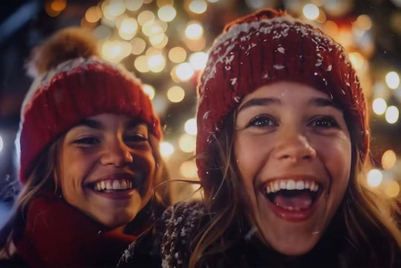This year's 'lyric bottles’, reminiscent of 2013's 'nicknamed bottles', focus on music as a catalyst for sharing a Coke. Conceived by Isobar, the campaign puts lyrics from some of China’s most famous and best loved songs on the bottles, such as "一步步完成当时的心愿" (the chorus from a Mayday 五月天 song titled 步步Step by Step; see below) and "你是我最重要的决定" (an earworm from a Christine Fan 范玮琪 number). The full list is below.
In addition, QR codes on each bottle allows drinkers to scan them to trigger an animated clip of the same song chorus, meant to be shared on WeChat. The codes signify there is digital content behind just lyrics slapped on a label. WeChat has an in-app code scanner, and with such high penetration within the mainland, it was Isobar's optimum choice of weapon.
These short musical clips are a "whole new way to consume music", said Tim Doherty, chief creative officer of Isobar China. The agency is calling these 'musicons’ (short for musical emoticons). "Musicons are to songs what tweets are to blogs," he said. "Sometimes a musical soundbite says it better, as it is more digestible.”
|
Lyrics |
Song |
Singer |
|
听妈妈的话 |
听妈妈的话 |
周杰伦 |
|
你在我眼中是最美 |
最美 |
羽泉 |
|
宝贝对不起 |
宝贝对不起 |
草蜢 |
|
让我们乘着阳光 看着远方 |
阳光宅男 |
周杰伦 |
|
数着浪花一朵朵 |
浪花一朵朵 |
任贤齐 |
|
一想到你呀 就让我快乐 |
一想到你呀 |
張惠妹 |
|
随风奔跑 自由是方向 |
奔跑 |
羽泉 |
|
我一直有双隐形的翅膀 |
隐形的翅膀 |
张韶涵 |
|
超越自己才是成功 |
中国节拍 震动世界 |
张学友 |
|
由我們主宰 |
FIFA 2014 |
五月天 |
|
伤心的人 别听慢歌 |
伤心的人别听慢歌 |
五月天 |
|
我和我最后的倔强 |
倔强 |
五月天 |
|
你是我最重要的决定 |
最重要的决定 |
范玮淇 |
|
最初的梦想绝对会到达 |
最初的梦想 |
范玮琪 |
|
蝉鸣的夏季我想遇见妳 |
时光机 |
周杰伦 |
|
我爱夏天 |
我爱夏天 |
脱拉库 |
|
阳光总在风雨后 |
阳光总在风雨后 |
许美静 |
|
分手快乐 |
分手快乐 |
梁静茹 |
|
我们都需要勇气 |
勇气 |
梁静茹 |
|
我要一步一步往上爬 |
蜗牛 |
周杰伦 |
|
男人歌 唱给谁来听? |
男人KTV Men’s KTV |
胡彦斌 |
|
一步步完成当时心愿 |
步步 |
五月天 |
|
明天心也要作伴 |
明天也要作伴 |
SHE |
|
一生一起走 |
朋友 | 周华健 |
Last year's nickname campaign, which was an Effie China Grand Prix winner, was a hard act to follow for Coke. "It was a real challenge, a difficult second album if you like." said Stephen Drummond, senior director of content excellence, iMarketing and design at Coca-Cola Greater China & Korea.
Isobar's digital-based idea was a "worthy, if not better, followup" to last year, as an experience that "flowed seamlessly from the packaging into digital and social media,” he added. In China, consumers obtain music for free (or next to nothing) and are accustomed to it—one insight that helped Isobar conceptualise this idea.
Whether it's putting nicknames or song lyrics on Coke bottles and cans, the product itself has become a vehicle for self-expression. But will consumers get tired of it? Will there be a double hat-trick in sales again? When Campaign Asia-Pacific questioned the scale of shareability (and thus sales stimulation, since last year's efforts reportedly reaped a 20 per cent increase) for this year's concept, Doherty said last year's campaign had a factor of slight discrimination, as consumers had to fit their friends to the nicknames, and whatever nicknamed bottle one received depended on how people viewed one another.
"With this lyric campaign, people in China can signal how they are feeling with the juicy heart of a song," he explained. "It is not based on identities, but the status of one's emotions which can be shared repeatedly, because a person has a different mood under different circumstances every day."
Lyrics with general themes of life, love and happiness were chosen to coincide with the four major events in China this summer: the college entrance examination (高考), graduation season, World Cup and Chinese Valentine's Day (七夕).
"The campaign has talkability only when you get the lyrics right. So the older the song, the better its pop heritage and thus rememberability. That is the first order of engagement," said Doherty.

Above-the-line work (TV, OOH and print) for the campaign was produced by Leo Burnett; data mining, research and analysis by AdMaster, which helped pick the songs by merit of the volume and frequency of mentions on social media.
Below-the-line activity and retail activation began on 19 May, with Coke reaching out to key influencers, opinion leaders and celebrities like Chinese business magnate Pan Shiyi with personalised bottles that, of course, incentivised them to share (or show off) on social media.



.jpg&h=334&w=500&q=100&v=20250320&c=1)
.jpg&h=334&w=500&q=100&v=20250320&c=1)
.jpg&h=334&w=500&q=100&v=20250320&c=1)



.png&h=334&w=500&q=100&v=20250320&c=1)

.png&h=334&w=500&q=100&v=20250320&c=1)








